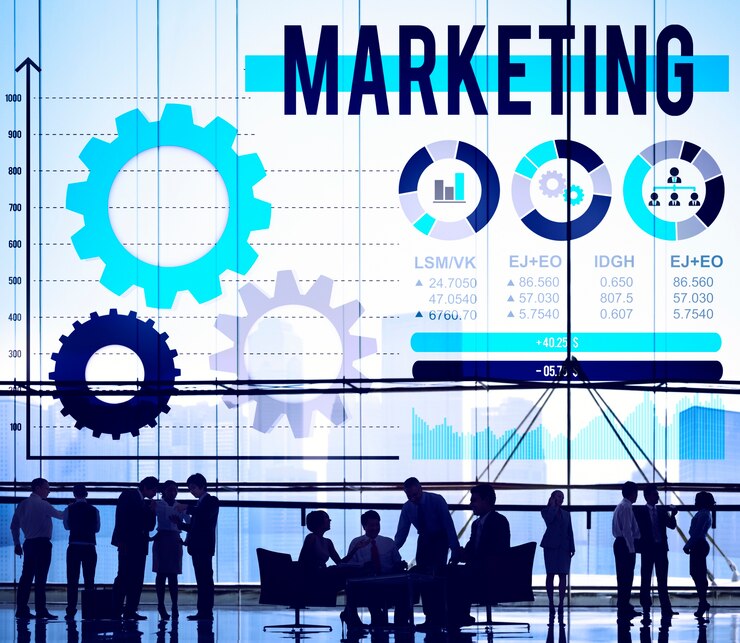The capacity to successfully traverse the intricate and always-changing terrain of Internet marketing is crucial to the success of any company in the modern digital era. With new digital platforms and technologies cropping up all the time, businesses are faced with the daunting challenge of efficiently reaching their target audience and engaging them amidst severe competition. In this article, we unveil the strategic solutions offered by Webolutions digital marketing services, shedding light on the essential tools and techniques that businesses can leverage to achieve their marketing objectives.
Getting A Grip On Digital Marketing
Search engines, social media, email, and websites are just a few examples of the many digital channels that can be utilized to promote a business’s name, wares, or services. Digital marketing encourages engagement and connection, allowing firms to establish genuine relationships with their audience, in contrast to traditional marketing methods that frequently depend on one-way communication.
The Role Of Strategy
Digital marketing success hinges on careful preparation. In order to accomplish their aims and objectives, firms rely on well-crafted strategies that act as road maps. Whether it’ increasing brand awareness, driving website traffic, or generating leads, a strategic approach is essential for success in the digital realm.
Key Components Of Digital Marketing Strategy
-
Target Audi Once Identification:
Digital marketers need to know their audience inside and out, including their hobbies, demographics, and preferences. To better target their customers, firms should undertake in-depth market research and make use of data analytics tools to learn how their target demographic behaves.
-
Content Marketing:
Digital marketing revolves around content. Whether its bbl. g posts, articles, videos, or infographics, the secret to drawing in readers and keeping their attention is to provide them with material that is both useful and interesting. Content marketing not only helps establish thought leadership and credibility but also drives organic traffic a d fosters customer loyalty.
-
Search Engine Optimization (Seo):
With so many websites competing for users’ attention online, it is more important than ever to rank highly in SERPs. Search engine optimization (SEO) methods include optimizing keywords, creating links, and optimizing your website; all work together to raise your site’s ranking and increase its discoverability.
-
Social Media Marketing:
Social media platforms provide businesses with unmatched opportunity to connect with their audience, thanks to their billions of users globally. By creating compelling content, engaging with followers, and leveraging advertising tools, businesses can effectively promote their brand and drive engagement on platforms like Facebook, Instar m, Twitter, and LinkedIn.
-
Email Marketing:
One of the best ways to reach and nurture prospects is via email, even if there are many other communication channels available. With personalized messaging and targeted campaigns, businesses can deliver relevant content directly to their subscribers’ inboxes, driving conversions and fostering long-the m customer relationships.
-
Paid Advertising:
You may get more out of your digital marketing budget by combining organic strategies with paid ads. Businesses are able to precisely target certain demographics and monitor the efficacy of their advertising efforts through paid advertising, which includes pay-per-click (PPC) ads on search engines and display ads on social media platforms.
Leveraging Technology
In addition to strategic planning, technology plays a crucial l role in digital marketing. Analytics tools and marketing automation systems are just two examples of the many technological options available to businesses today that promise to increase produce invitee, enhance performance, and produce tangible results.
-
Marketing Automation:
In order to free up time for more strategic activities, automation solutions allow firms to automate repetitive procedures like lead nurturing, social media posting, and email scheduling. By implementing marketing automation, businesses can deliver personalized experiences at scale, improving efficiency and driving ROI.
-
Anal Tics And Reporting:
Data is the lifeblood of digital marketing. Analytics tools help firms analyze the efficacy of their marketing activities and make data-driven decisions by providing insights into campaign performance, audience behavior, and conversion metrics. Using key performance indicators (KPIs) and trend analysis, business plans may be fine-tuned and results optimized.
-
Artificial Intelligence (AI) And Machine Learning:
AI-powered technologies are revolutionizing the way businesses approach digital marketing. From predictive analytics to chatbots, AI and machine learning algorithms enable businesses to deliver more personalized and targeted experiences to their audience, driving engagement and conversions.
The Future Of Digital Marketing
The digital marketing landscape will surely see more revolutions as technology evolves and customer behavior shifts. From the rise of voice search and augmented reality to the increasing importance of privacy and data security, businesses must stay abreast of emerging trends and adapt their strategies accordingly.
Finally, businesses may accomplish their marketing goals in today’s complex digital marketplace with the help of digital marketing services, which provide strategic solutions. When companies use a combination of creativity, technology, and strategic planning to engage their audience and drive conversions, they can enhance their bottom line in the digital realm.


